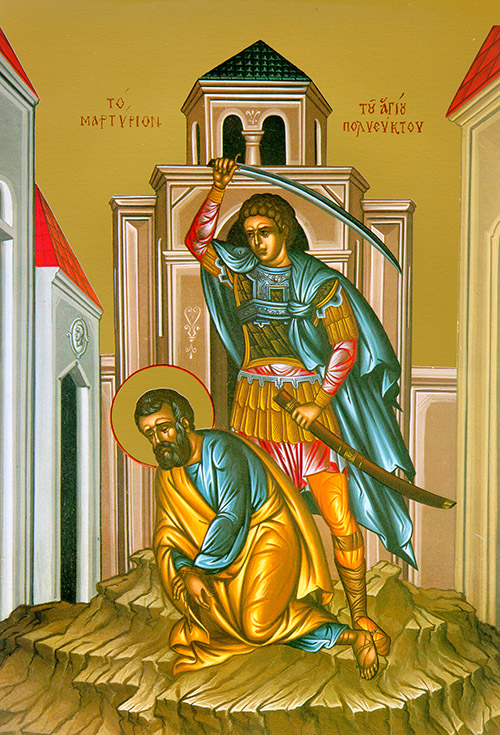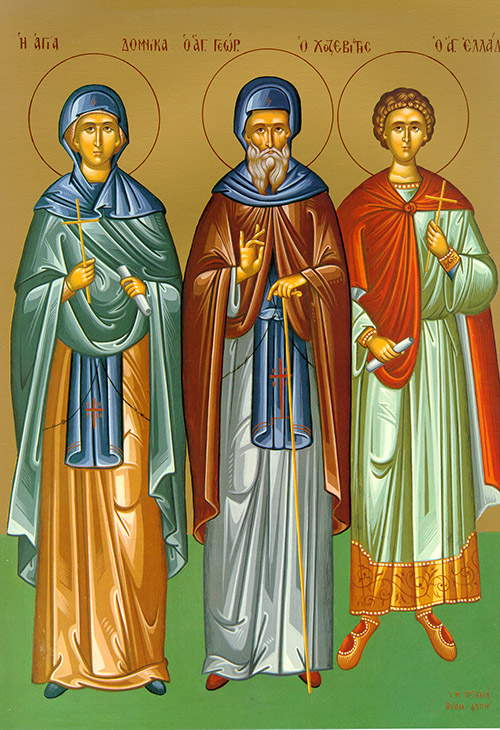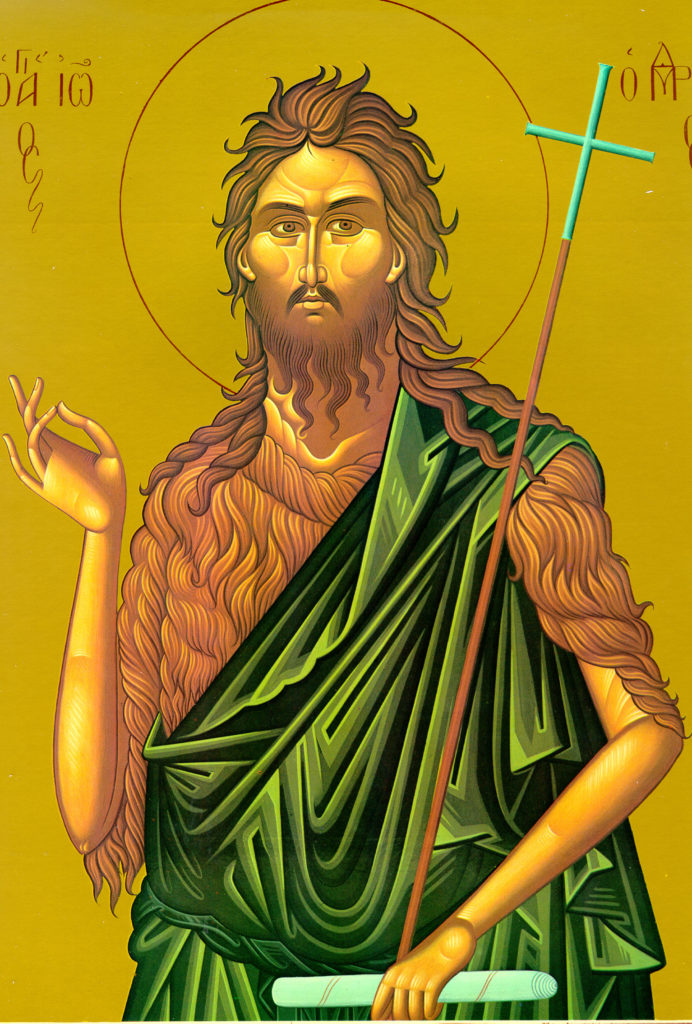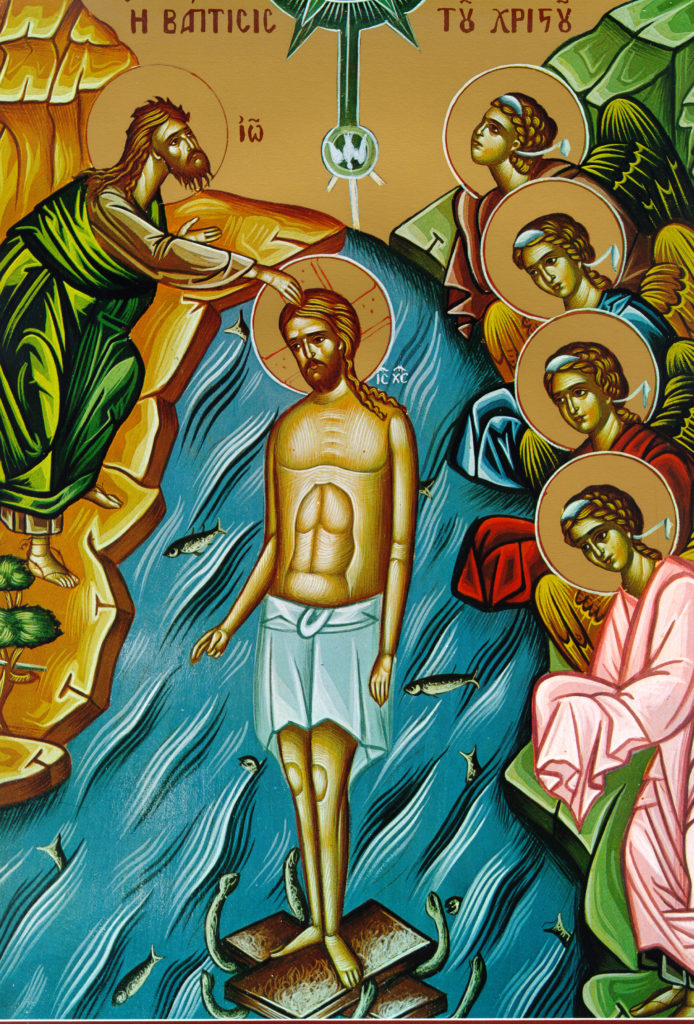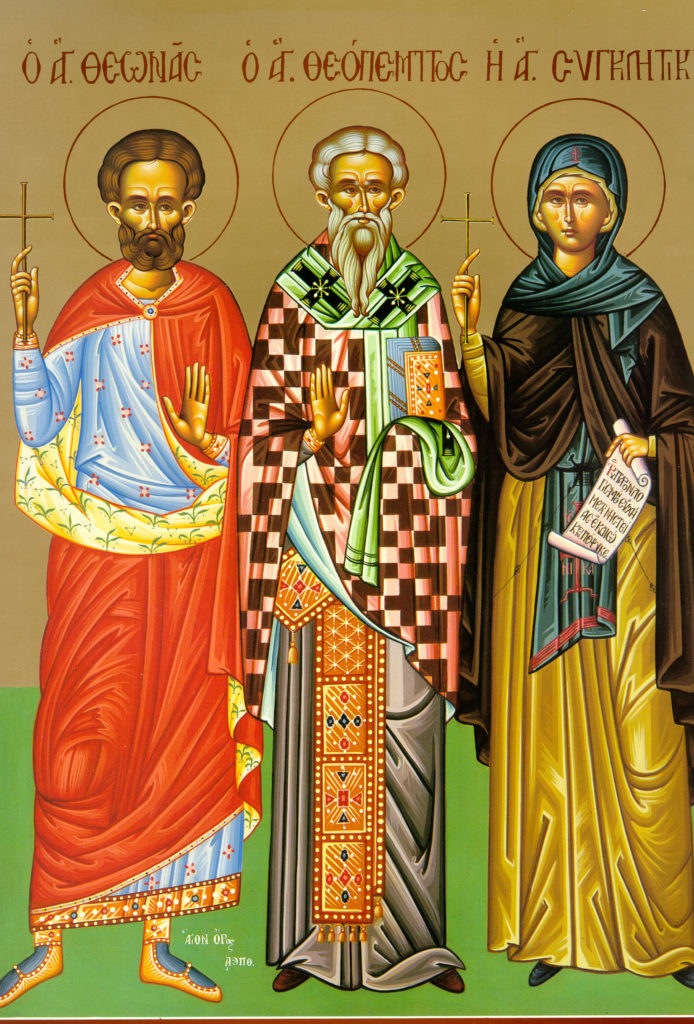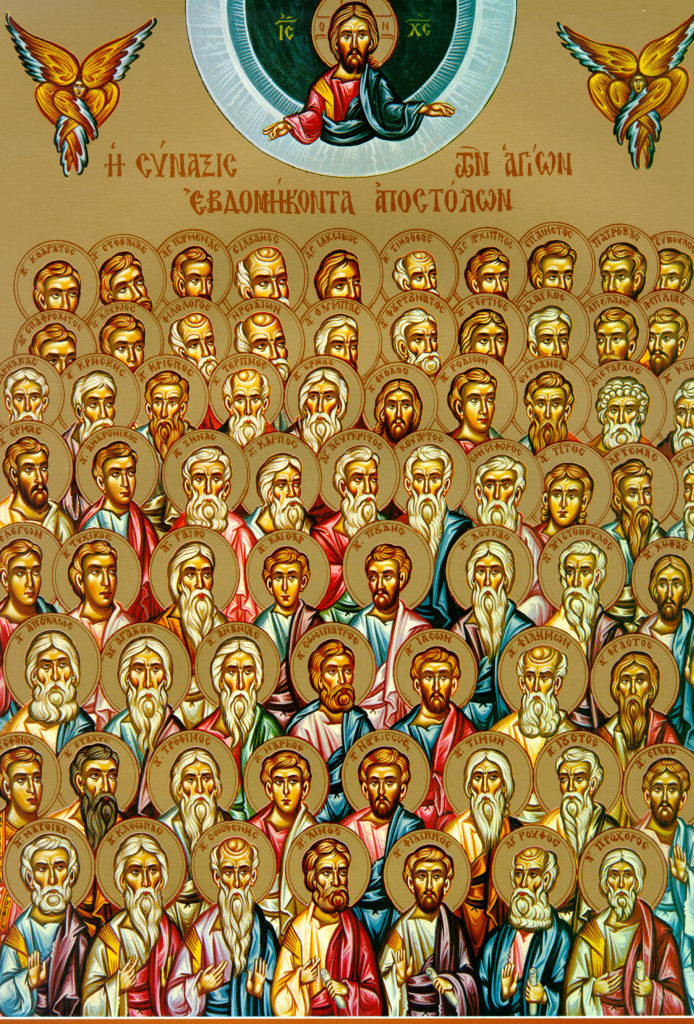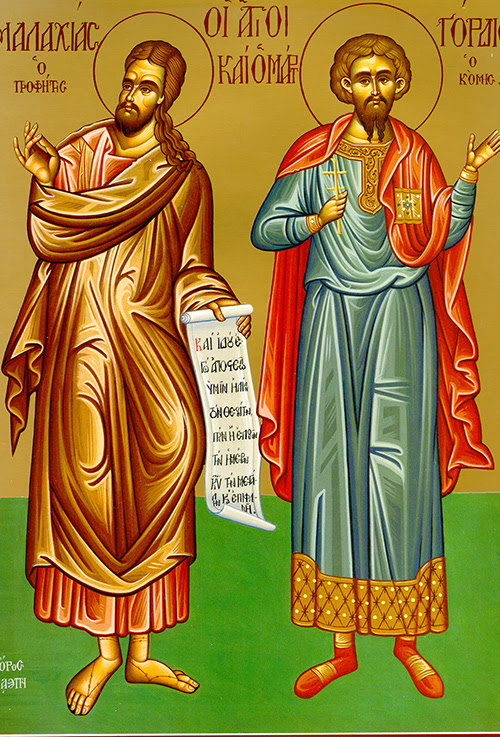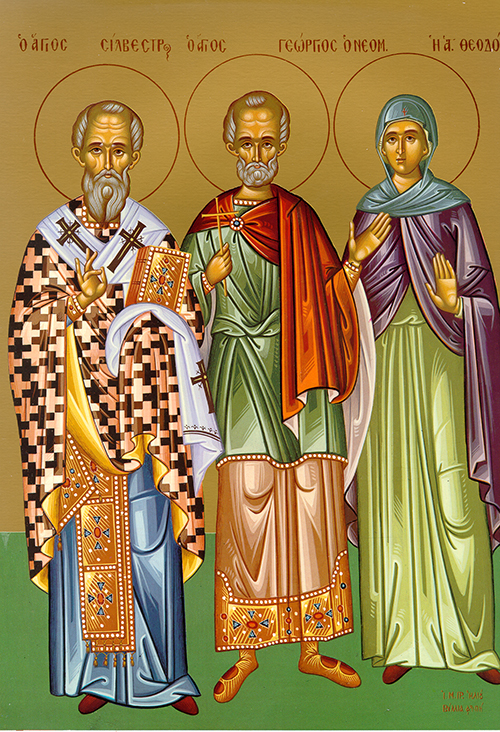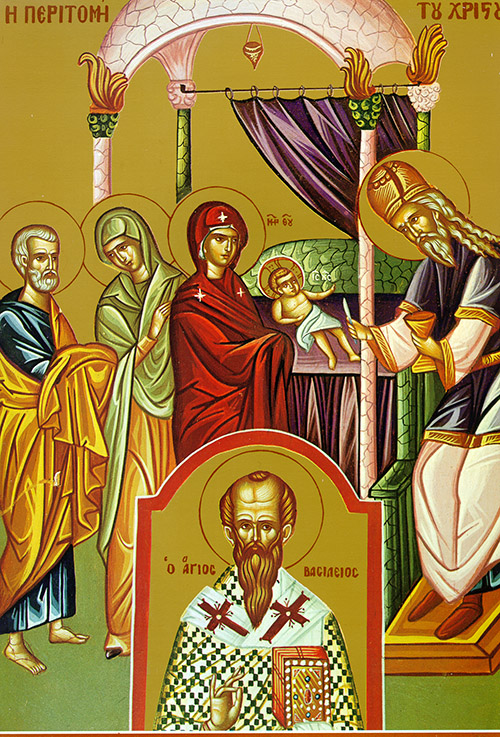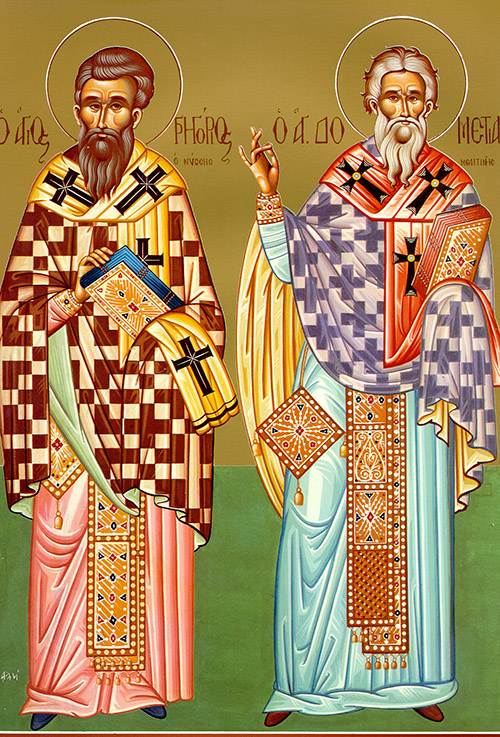

Our holy father Gregory, Bishop of Nyssa, brother of St. Basil the Great, one of the great theologians of the Byzantine Church (c. 395)
The venerable Dometian, Bishop of Melitene, who lived under Emperors Justinian the Lesser and Maurice. He was known for his remarkable intelligence, prudence, and spiritual zeal, and for his love of the poor. (602)
Our venerable father Marcian, priest and treasurer of the Great Church in Constantinople, second in command to Patriarch Gennadius. (c. 471)
Troparion
God of our fathers, You always deal with us according to Your everlasting compassion. Take not Your mercy away from us; but through their prayers guide our life in peace.
Kontakion – Gregory
That heavenly hierarch of the Church and precious mystic orator of Wisdom, that vigilant mind, Greogory of Nyssa, sings praises along with the angels and finds delight in the Light divine. He now prays unceasingly for all of us.
Kontakion – Marcian
You were anointed with the divine priesthood, and you showed this by virtue and obedience to Christ. Having finished your course, O Father, you sing with the angels in heaven: Glory to your compassion, O Savior! Glory to your kingdom! Glory to your providence, O Lover of Humankind!
Readings for St. Gregory
Epistle
1 Corinthians 12: 7-11
To each individual the manifestation of the Spirit is given some benefit. To one is given through the Spirit the expression of wisdom; to another the expression of knowledge according to the same Spirit; to another faith by the same Spirit; to another the gifts of healing by the one Spirit; to another mighty deeds; to another prophecy; to another interpretation of tongues. But one and the same Spirit produces all of these, distributing them individually to each person as he wishes.
Gospel
Matthew 10: 1,5-8
Then He summoned His twelve disciples and gave them the authority to expel unclean spirits and to cure sickness and disease of every kind.
Jesus sent these men on mission as the Twelve, after giving them the following instructions:
“Do not visit pagan territory and so not enter a Samaritan town. Go instead after the lost sheep of the house of Israel. As you go, make this announcement, ‘The reign of God is at hand! Cure the sick, raise the dead, heal the leprous, expel demons. The gift you have received, give as a gift.”
Readings for the day
Epistle
Ephesians 6: 10-17
Brothers and sisters: Draw your strength from the Lord and His mighty power. Put on the armor of God so that you may be able to stand firm against tactics of the devil. Our battle is not against human forces but against the principalities and powers, the rulers of this world of darkness, the evil spirits in regions above. You must put on the armor of God if you are to resist on the evil day; do all that your duty requires, and hold your ground. Stand fast, with the truth as the belt around your waist, justice as your breastplate, and zeal to propagate the gospel of peace as your footgear/ In all circumstances hold faith up before you as your shield; it will help you extinguish the fiery darts of the evil one. Take the helmet of salvation and the sword of the spirit, the word of God.
Gospel
Matthew 4: 1-11
At that time Jesus was led into the desert by the Spirit to be tempted by the devil. He fasted forty days and forty nights, and afterward was hungry. The tempter approached and said to him, “if you are the Son of God, command these stones to turn into bread.” Jesus replied, “Scripture has it: ‘Not on bread alone is man to live but every utterance that comes from the mouth of God.’”
Next the devil took him to the holy city, set him on the parapet of the temple, and said, “If you are the Son of God, throw yourself down. Scripture has it: ‘He will bid his angels take care of you; with their hands they will support you that you may never stumble on a stone.’” Jesus answered him, “Scripture also has it: ‘You shall not put the Lord you God to the test.’”
The devil then took him up a very high mountain and displayed before him all the kingdoms of the world in their magnificence, promising, “All these will I bestow on you if you prostrate yourself in homage to me.” At this, Jesus said to him, “Away with you Satan! Scripture has it: ‘You shall do homage to the Lord your God; Him alone shall you adore.’” At this the devil left him, and the angels came and waited on him.
Icon courtesy of Jack Figel, Eastern Christian Publications – ecpubs.com


